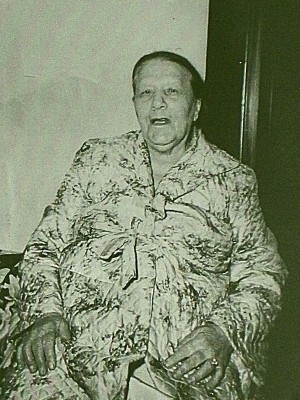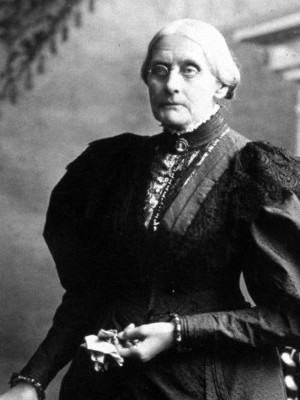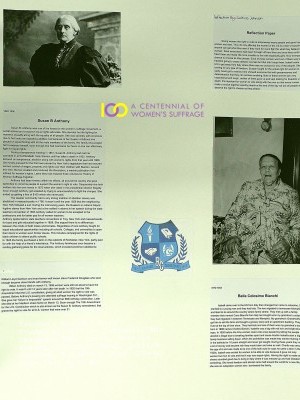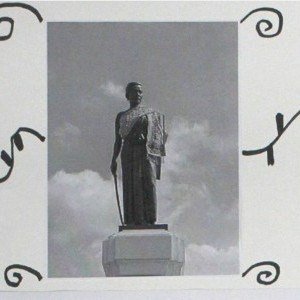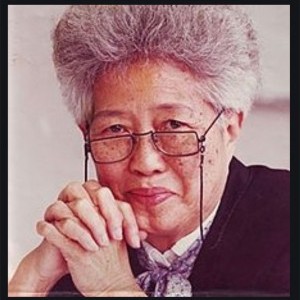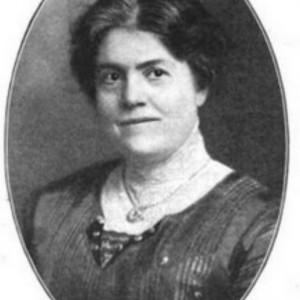Justice Johnson
Rainier Christian High School | Auburn, WA | 12th Grade
Inspirational Family Member
Bella Colosimo Bianchi
Isabella came over to the US from Italy then changed her name to Colosimo. She married to a young man and they had kids. The two migrated to Tennessee and Memphis, and liked to be around the country where farms were. They met up with a family member there, named Cane Bianchi from Italy who had brought his sons, my grandma’s uncles, and they had migrated in between Tennessee and Memphis. My grandma’s grandmother got him to sell the farm and they bought a grocery store and an apartment building. They lived at the top of their store. They had kids and one of them was my grandma’s dad, born in 1808, named Charles Bianchi.
Isabella was a big baby with red hair and bright blue eyes. In 1920, before the time women could vote, a law passed telling people that alcohol was illegal due to breaking families apart and causing trouble. Isabella then started a big family business selling liquor. When prohibition started, they began making liquor in the bathtub and for 10 years straight never got caught. During these years, they made a lot of money and became rich. They made beer and wine as well. My grandma’s dad, Charlie, was around the age of 6 then and he was made to be one of the “lookouts” for cops; he became a teen in the 1920s.
Isabella was excited for women to be able to vote because it gave not only men but also women, the right to vote and that meant now they could have equal rights. Having the right to make any choice sounded good due to living in Italy where it was messed up and had dictators controlling. She loved freedom and almost came half way around the world for a new life. She was an outspoken woman who dominated the family.
Historical Figure I Admire
Susan B. Anthony
Susan B. Anthony was one of the forces of the Women’s Suffrage Movement, a social activist and a staunch equal rights advocate. She devoted her life to fighting for women’s equality along with the equality of all people. She was severely self-conscious due to her looks and speaking abilities, but because of her Quaker childhood, she was placed on equal footing with all the male members of the family. Her family encouraged her to express herself and soon enough, she had overcome her fears and could effectively fight for equal rights.
During a Temperance meeting in 1851, Susan B. Anthony met Elizabeth Cady Stanton who would become her comrade-in-arms until the latter’s death in 1902. Anthony lectured on temperance and abolition, along with women’s rights from that year on until 1860. Together with Stanton, they finally pressed for the first laws passed New York’s legislature, which ensured women control of their wages, property and rights over their children. Around this time, the two created and produced The Revolution, a weekly publication that lobbied for women’s rights. Later with Matilda Joslyn Gage, they would write and edit the first three volumes of the History of Woman Suffrage.
Anthony had been tireless in her efforts; all around the country she gave speeches to convince people to support women’s right to vote. Desperately, she took matters in her own hands in 1872, when she voted in the presidential election illegally (for Ulysses S. Grant.) Soon enough, Anthony got arrested by trying to unsuccessfully fight the charges. She ended up getting a fine of one hundred dollars, which she never paid.
The Quakers were ardent abolitionists. Slavery was abolished in Massachusetts in 1790. It wasn’t until the year 1826 that neighboring New York followed suit. During the intervening years, the Quakers of Adams, Massachusetts, helped fugitive slaves from New York. A few of them settled in Adams. In her speech during the New York State Teachers’ Association’s convention of 1853, Anthony called for women to be accepted to “the professions” and for better pay for all women teachers.
In 1859, Anthony spoke before state teachers’ conventions in Troy, New York and in Massachusetts advocating for boy and girls to be educated together. She argued that there were no differences between the minds of males and females. Regardless of race, Anthony fought for equal educational opportunities. She called for colleges and universities to open their doors to women and to former slaves. She also campaigned for the rights of black children to attend public schools.
In 1845, the family purchased a farm on the outskirts of Rochester, New York, partly paid for with the help of a friend’s inheritance. The Anthony farmhouse soon became a Sunday gathering place for local activists, which included prominent abolitionists William Lloyd Garrison and former slave, Frederick Douglass, who soon became close friends with Anthony.
When Anthony died on March 13, 1906, women were still not allowed to vote. It wasn’t until 14 years after her death, in 1920, that the 19th Amendment to the US Constitution was passed, giving women the right to vote. Before Anthony’s passing, she attended suffrage hearings in Washington, DC. In 1906, she gave her Failure is Impossible speech at her 86th birthday celebration. She died at her Madison Street home a month later.
The 19th Amendment, which is also known as the Susan B. Anthony Amendment, granted the right to vote to all US women over the age of 21.
What the Project Means to Me
Giving women the right to vote has empowered many people and gave hope to women and men. This not only affected the women of the US but also men and teaches us that anyone can get what they want if they work for it and fight for what they believe in.
Each woman I have written about went through tough, hard times and once they could vote, it freed them and made life more possible to live with, especially for girls. Now everyone has a chance to choose as they please. Each of these women went out of their way to find freedom, going through crazy obstacle courses that they didn’t let stop them.
Isabella came to the US to get away from Italy where there were no choices for any of the people. She went looking for any type of freedom. Susan fought for the actual right to vote for women and sadly never got to vote, but she showed everyone that with perseverance and determination, one can achieve anything. Both of these women are very inspirational and tough, neither of them gave up and kept looking for freedom until death.
Explore the Archive
More From This Class
Click on the thumbnails below to view each student's work.Deadline Extended
There's still time to join Women Leading the Way.
Become a part of our storytelling archive. Enroll your class today.
Join the Project

